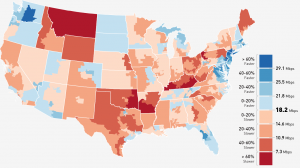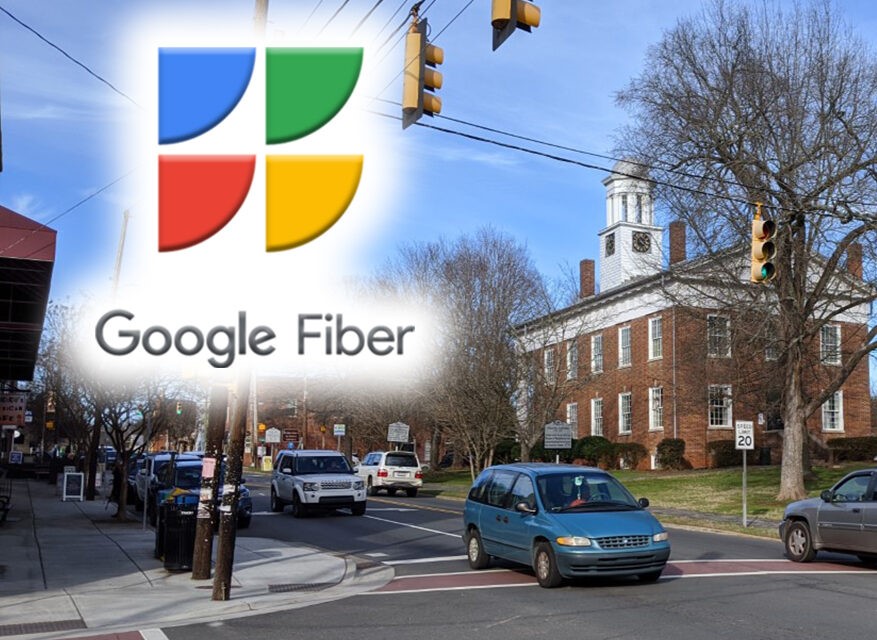Your days of waiting for videos to buffer or uploading attachments may be over soon as competition is growing for which data provider is going to offer internet speeds up to 100 times faster than your current provider.
AT&T announced Thursday that it would join Google and Time Warner Cable in providing cities in the Triangle and Winston-Salem one-gigabit speeds through their fiber-optic internet services.
“AT&T already has a large fiber footprint in the region—that’s one of the reasons it made it such an attractive partner,” says Marc Hoit, the Vice Chancellor for Information Technology at N.C. State and a spokesperson for the North Carolina Next Generation Network (NCNGN). “With that, they have the ability to jump start and do things faster. We’re hoping some of those connections start before the end of this year.”
The towns of Chapel Hill and Carrboro along with UNC agreed in January of last year to join four other municipalities and three other major universities to ratify NCNGN. According to its website, NCNGN is a “regional initiative focused on stimulating the deployment of next generation broadband networks in North Carolina.” It’s also comprised of Durham, Cary, Raleigh, and Winston-Salem; Duke and Wake Forest round out the group.
According to Gizmodo, a design and technology blog, the Triangle averages internet speeds between 10.9 and 14.6 megabits per second. The ultra-high-speed internet option of one-gigabit per second would be 70-100 times greater than those averages.
“If you think of how long it takes to download a movie or if you’re doing education content with the university and doing streaming, some of the things that you want to do with offsite stuff like Google Apps and Documents and Microsoft SkyDrive and download music and your save your music up in the cloud, if you have a one gig file and you’re up at a gig, it takes a second,” Hoit says.
Hoit says NCNGN sees ultra-high-speed internet changing the world of medicine.
“We’re hoping to see things like medical diagnostics live, hi-resolution video used for medical services or for other types of services that you can do diagnostics and use that high-speed stream,” Hoit says.
Another positive aspect of fiber-optic internet is downloading and uploading speeds are the same. With Google fiber or AT&T U-verse with GigaPower, you could receive or send files big and small in almost no time. For example, you could download a full-length, high-definition movie in about 30 seconds.
“The symmetric version is really important from our standpoint, because as you want to work with all these new services that people are doing and putting your music in the cloud; if somebody’s in a studio and creating music and then wants to put it up and to be served somewhere else, you need that upload speed just as much,” Hoit says.
Google offered its first fiber-optic internet service in Kansas City, Missouri in 2012. It later expanded to Provo, Utah and Austin, Texas. In mid-February, the internet giant announced it was considering Triangle cities as places to expand the ultra-high-speed option.
Time Warner Cable said last year that it plans to extend the next level of service sometime in the near future.
Of course, the prices for these ultra-high speed options could be higher. Google fiber in Kansas City is selling its product at $70 per month for internet alone. It is, however, currently waiving its $300 construction fee to customers who sign up.
“Our expectation is to be priced similar to what you’re seeing in Kansas City and in Austin,” Hoit says. “The price depends on the costs and other things, but it should be very close to that same price.”
The next step for the municipalities and universities within NCNGN is to review the terms and agreements of the plan to continue the process.
Carrboro elected officials will likely vote in mid-May on the plan; Chapel Hill leaders have not decided on a date when they will vote on the plan. However, Hoit says the next step should be fairly seamless.
“It’s been a two, two-and-a-half year process of which the municipalities and the universities have been working together through this whole time,” Hoit says. “It will hopefully not come as a surprise. The municipal lawyers have all been involved, so there’s been a lot of collaboration that we’re hoping everything goes smoothly.”




